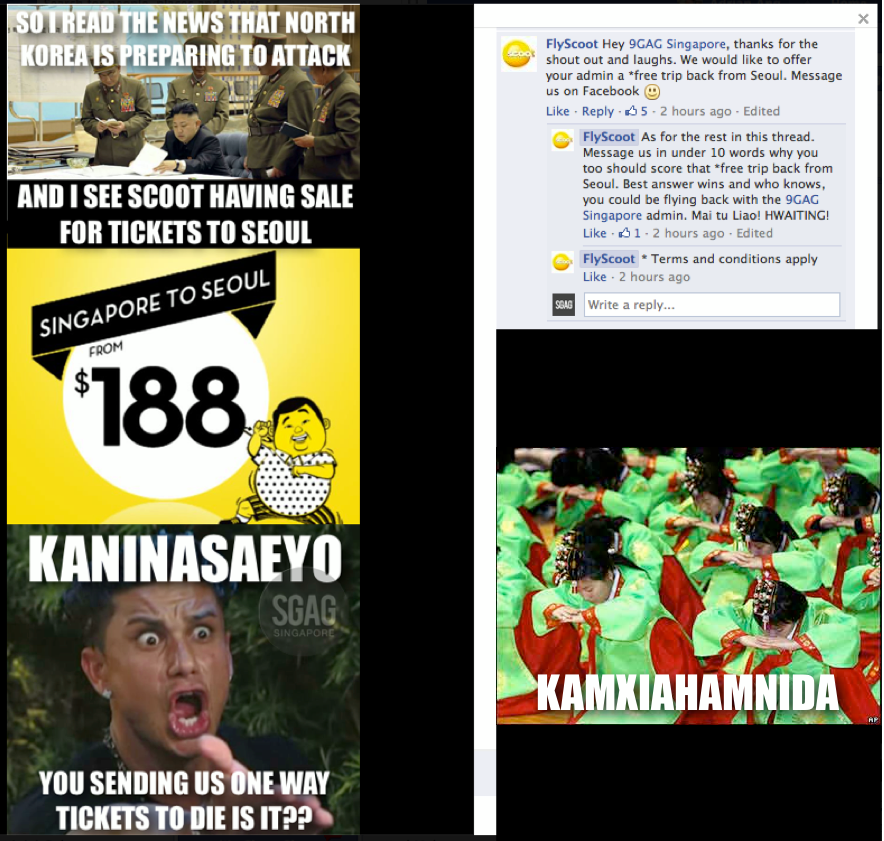Scoot to better engagement
When it comes to successfully reaching an audience on social media, meaningful engagement is a particularly crucial ingredient. For most brands, however, this is also the most difficult concept to grasp.
For many brands, community management ends up devolving into a series of posts that pander to audience members to ‘Like’ their posts. Some brands make the flawed assumption that a neverending series of contests – many of which feature incarnations of children’s games such as I Spy, or resort to ‘fill in the blanks’ activities – will appeal to social media audiences.
While these posts may temporarily increase engagement, they are short-sighted solutions at best, and ultimately a far cry from what is truly necessary to cultivate long-term relationships on social media.
Then again, there are some brands that demonstrate a strong understanding of what lies at the core of meaningful engagement on social media.
Scoot exemplifies this kind of thinking in spades.
The low-cost carrier recently offered a deal to fly from Singapore to Seoul for $188 SGD. As news of this promotion spread across social media, 9GAG Singapore followed up by pointing out the potentially awkward timing of the deal, citing recent political tensions surrounding the destination city’s neighbour, North Korea:
In what might have otherwise been an awkward incident for the airline, Scoot speedily avoided a potential crisis by offering the page admin a “free trip back from Seoul”, as well as the opportunity for other commenters to win a free trip back as well.
At first glance, the brand’s response seemingly follows the uninspired ‘contest-for-engagement’ formula. On the contrary, however, Scoot’s success lies in refashioning this concept by focusing on a highly relevant opportunity to engage their community in meaningful conversation. In essence, Scoot’s response has embedded contest-based motivation into the issue at hand.
Instead of attempting to dilute audience concern by posting more promotional content; instead of undermining the validity of the issue; instead of ignoring the issue (and hoping it would just go away on its own) completely, Scoot successfully reclaims the issue by steering the focus of the conversation back toward the brand.
Not only does this increase audience engagement, it also steers the conversation away from the issues at the heart of the initial SGAG post.
In the end, the conversation succeeds by reframing the issue toward representing Scoot as a humourous and relevant brand – one with a young and accessible voice. Indeed, it is the subtle self-deprecation, genuine tone of voice, and tongue-in-cheek humour that collectively transforms connotations of ‘corporate’ into ‘corporeal’ – insofar as it enables organic and brand-focused conversations to continue across the social media landscape.

